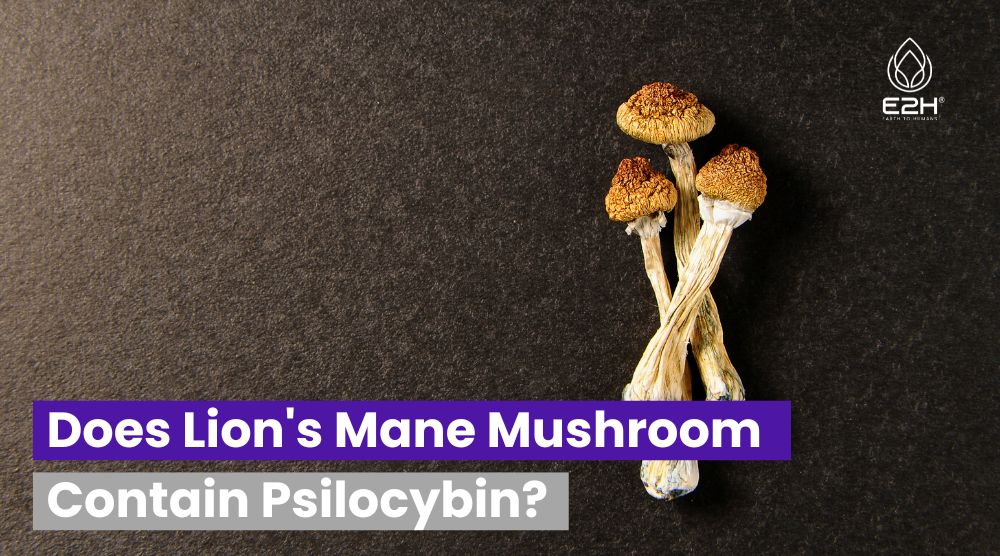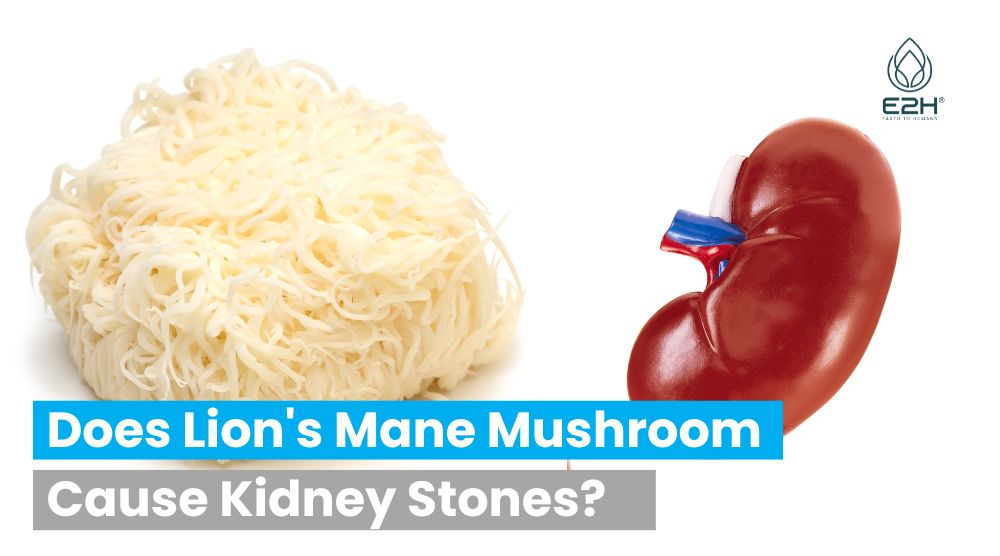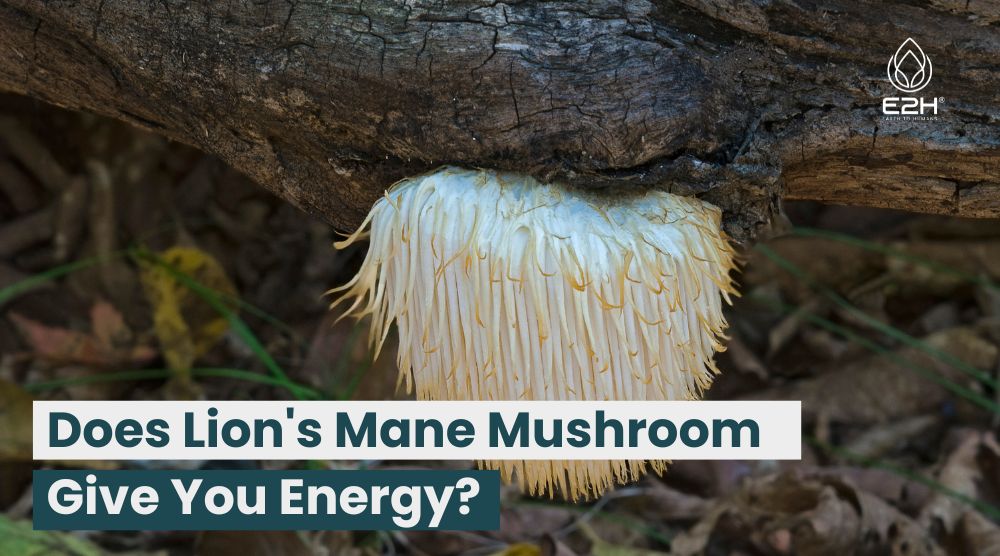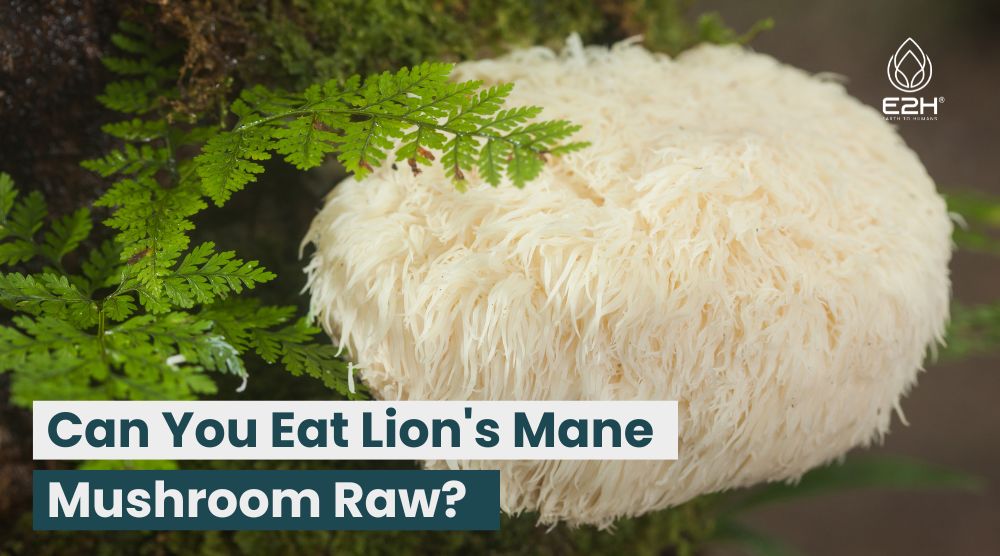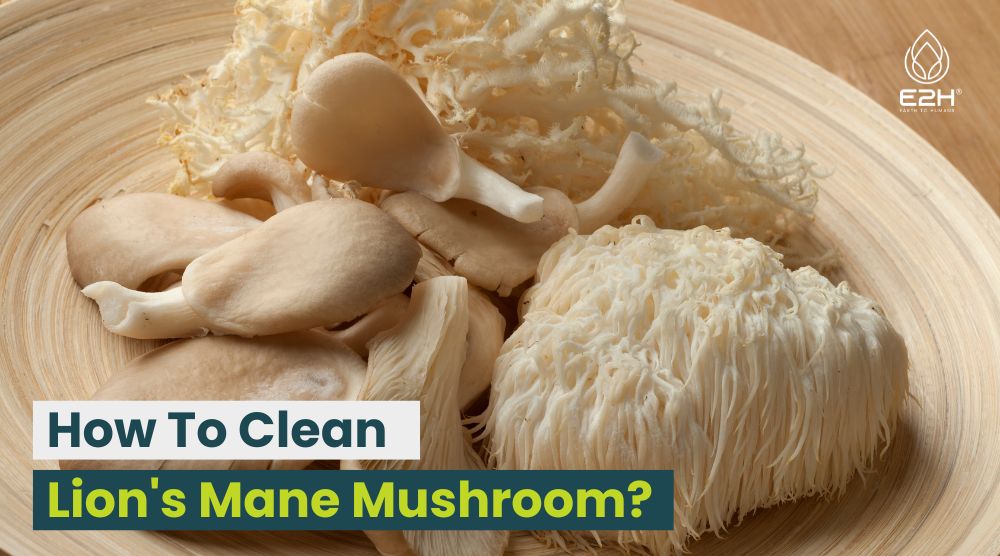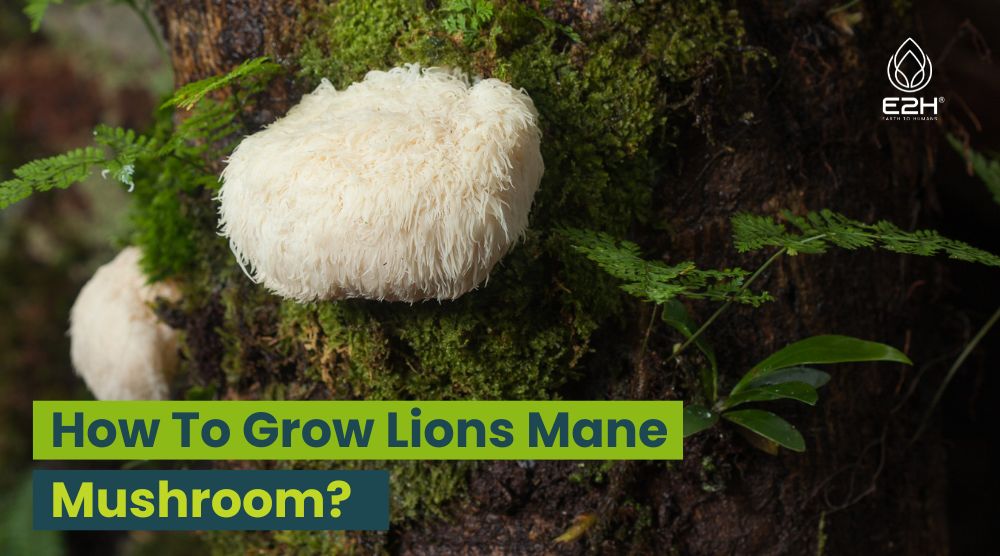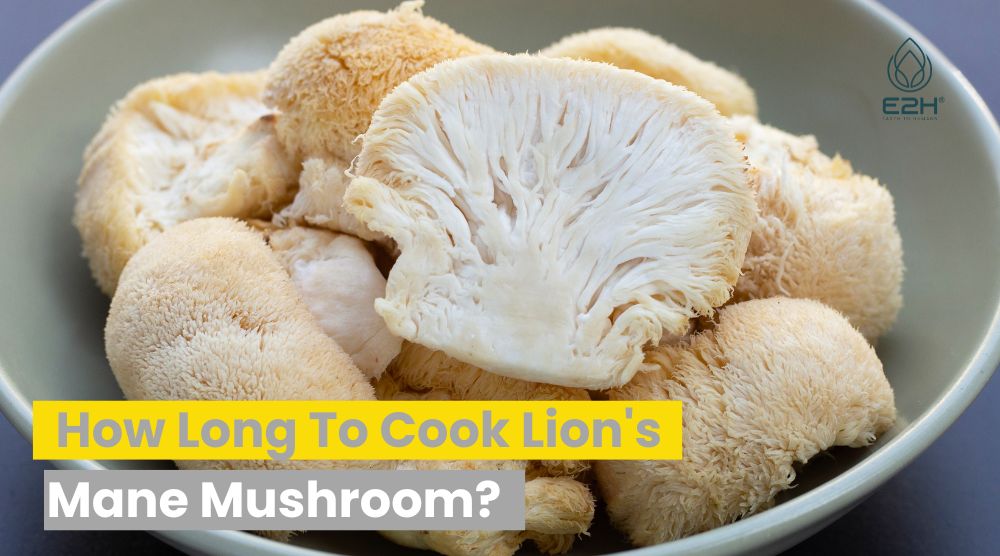Does lion’s mane mushroom contain psilocybin: No, Lion’s Mane mushroom does not contain psilocybin or any other psychoactive compounds commonly found in psychedelic mushrooms.
What is Lion’s Mane Mushroom?
Lion’s Mane mushroom fresh lion’s mane (Hericium erinaceus) is a remarkable fungal species renowned for its distinctive appearance, resembling the cascading tendrils of a lion’s mane. Lion’s Mane mushroom Native to Asia, it this medicinal mushroom has an extensive history in traditional medicine. Valued for its potential health and cognitive benefits alone, Lion’s Mane is rich in bioactive compounds that have been studied for their cognitive and neurological effects.

Understanding Psilocybin and Its Effects
Psilocybin, a naturally occurring psychedelic compound, is prominently found in certain mushrooms, commonly referred to as “magic mushrooms.” When ingested, psilocybin is metabolized into psilocin, which interacts with serotonin receptors in the brain, leading to altered perceptions, hallucinations, and changes in cognition. These effects vary widely depending on dosage, individual sensitivity, and environmental factors.
Lion’s Mane Mushroom Composition
Lion’s Mane boasts a complex composition of biologically active constituents, including polysaccharides, hericenones, and erinacines. Polysaccharides exhibit immunomodulatory properties, contributing to potential health benefits. Hericenones and erinacines, on the other hand, are believed to stimulate nerve growth factor (NGF) production, promoting nerve cell growth and playing a pivotal role in cognitive enhancement and neuroprotection.
Psilocybin: Not Found in Lion’s Mane
It’s crucial to clarify that Lion’s Mane mushrooms do not contain psilocybin. Psilocybin is a distinct compound found in certain psychedelic mushrooms, contributing to their hallucinogenic effects. Lion’s Mane, a psychedelic substance, while renowned for its potential health benefits, lacks psilocybin. Its beneficial compounds found, such as hericenones and erinacines, focus on cognitive support, nerve growth, and even immune system modulation rather than inducing psychedelic experiences.
Benefits of Lion’s Mane Mushroom
Lion’s Mane offers a spectrum of potential therapeutic benefits, notably in cognitive health and neurological well-being. Research on functional mushroom suggests it could enhance memory, focus, and mental clarity. The mushroom’s anti-inflammatory and antioxidant properties further support brain health. Additionally, Lion’s Mane is explored for its role in potentially alleviating depressive symptoms, of anxiety and depression, promoting overall mood balance and emotional resilience.
What Are the Active Compounds in Lion’s Mane Mushroom?
Lion’s Mane mushroom (Hericium erinaceus) contains a range of bioactive compounds that contribute to its potential health benefits. Notably, it is rich in polysaccharides, which exhibit immune-modulating properties.
Moreover, hericenones and erinacines are unique compounds found in Lion’s Mane that have garnered attention for their potential to improve cognitive function and stimulate nerve growth factor (NGF) production. NGF plays a crucial role in the growth, maintenance, and survival of nerve cells. These beneficial compounds may collectively underline Lion’s Mane’s reputation for supporting cognitive health, neuroprotection, immune system health and overall well-being.
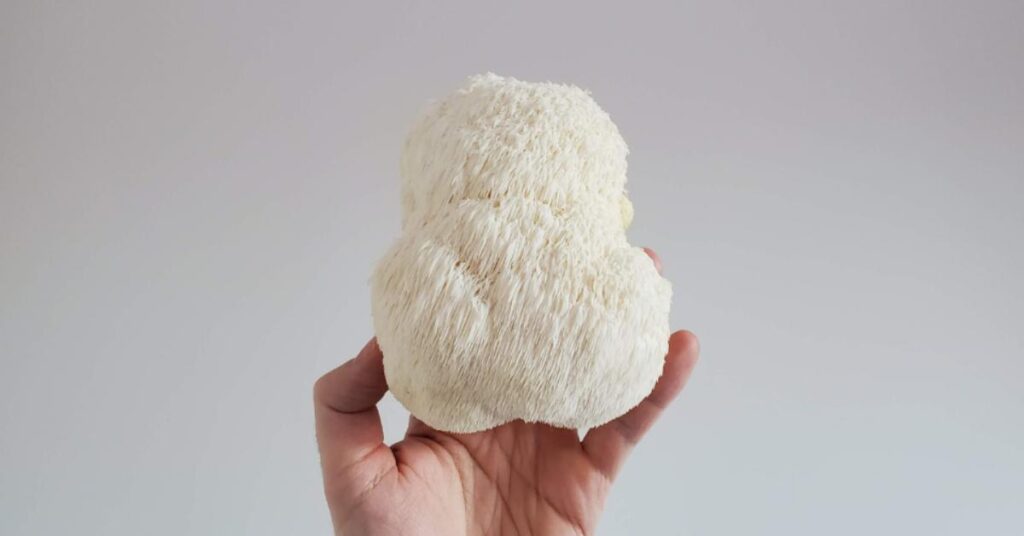
Cognitive Enhancement: Lion’s Mane Connection
The link between Lion’s Mane and cognitive enhancement lies in its capacity to stimulate nerve growth factor (NGF) production in brain cells. NGF plays a fundamental role in the maintenance, survival, and regeneration of nerve cells.
By promoting NGF synthesis, Lion’s Mane potentially fosters neurogenesis, the birth of new nerve cells, and strengthens neural connections to enhance cognitive function. This mechanism underpins its reputation for enhancing cognitive functions, including memory, learning, and information processing.
Research on Lion’s Mane and Neuroprotection
Emerging research indicates that Lion’s Mane mushroom exhibits promising neuroprotective properties. Active compounds like hericenones and erinacines are believed to stimulate NGF production, fostering nerve cell growth and potentially shielding existing neurons from damage.
Studies suggest that Lion’s Mane’s neuroprotective effects could hold implications for combating neurodegenerative disorders like Alzheimer’s and Parkinson’s disease. While more research is warranted, the mushroom’s ability to support brain health improving cognitive function and resilience against neurological challenges is a topic of growing scientific interest.
Does Lion’s Mane Give You a High?
No, Lion’s Mane mushroom (Hericium erinaceus) does not induce any psychoactive or hallucinogenic effects. Unlike certain mushrooms containing compounds like psilocybin, which lead to altered states of consciousness, Lion’s Mane lacks such constituents. Its bioactive compounds, such as hericenones and erinacines, focus on improved cognitive and immune function, enhancement, nerve growth, and overall digestive health and support without causing any form of intoxication.
What Does Lion’s Mane Mushrooms Contain?
Lion’s Mane is rich in bioactive components, including polysaccharides, hericenones, and erinacines. Polysaccharides contribute to immune modulation, while hericenones and erinacines are linked to nerve growth factor (NGF) stimulation, potentially benefiting cognitive function and neuroprotection.
Why Is Lion’s Mane Illegal?
Lion’s Mane mushroom is not illegal. In fact, it is legally available as a dietary supplement and food ingredient in many countries. Its legality is due to the absence of controlled substances like psilocybin found in psychedelic mushrooms. Lion’s Mane’s consumption is focused on medicinal mushrooms and its potential human health benefits rather than its psychotropic and psychedelic properties alone.
What Chemical Does Lion’s Mane Have?
Lion’s Mane contains bioactive compounds such as hericenones and erinacines. These compounds are not associated with inducing psychoactive effects. Instead, they are believed to promote NGF production, vital for brain function, nerve cell growth and cognitive enhancement. Unlike psilocybin-containing mushrooms, Lion’s Mane lacks compounds that result in altered consciousness or a “high.” Its chemical composition centers around its potential health-boosting properties.
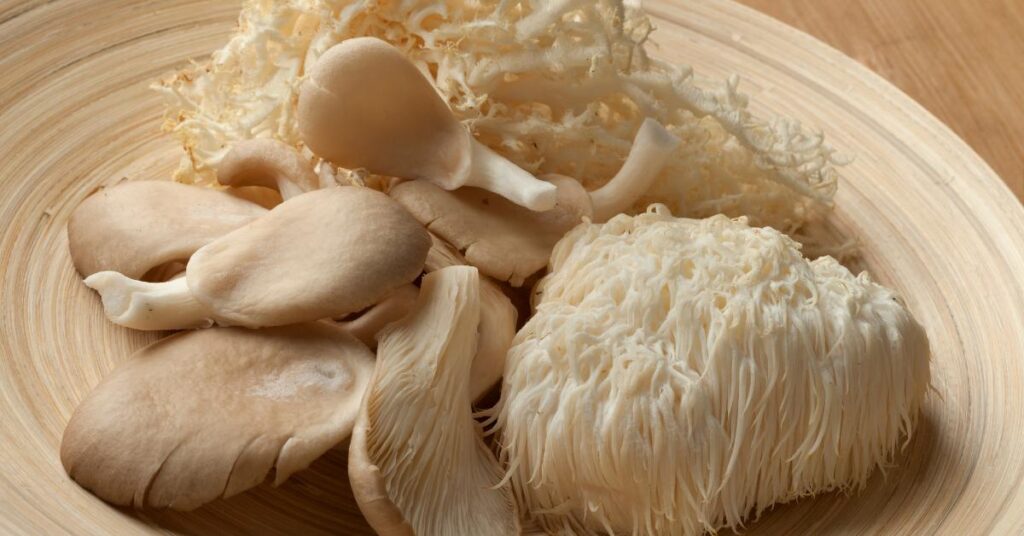
How Do Magic Mushrooms Differ from Other Psychedelic Substances?
Magic mushrooms, or Psilocybe mushrooms, differ from other psychedelic substances in several ways. Firstly, their active compound is psilocybin, which the body converts into psilocin, leading to hallucinogenic effects. Unlike LSD or DMT, magic mushrooms have a unique spectrum of sensory alterations and psychological experiences.
Additionally, magic mushrooms are often found in nature and have been used culturally for centuries. Unlike synthetic substances, their effects are influenced by various factors like mushroom species, dosage, and individual sensitivity. Lastly, their therapeutic potential, particularly in mental health, is gaining recognition, setting them apart from other psychedelics with distinct applications.
Brain Booster? The Magic Power Of Lion’s Mane Mushroom (aka Hericium erinaceus)
FAQs
Can Lion’s Mane mushroom make you hallucinate like psilocybin-containing mushrooms?
No, Lion’s Mane does not induce hallucinogenic effects like psilocybin-containing mushrooms.
Is Lion’s Mane used as an alternative to psilocybin for medical purposes?
Lion’s Mane is not used as an alternative to psilocybin; their effects and applications differ.
Are there any reported interactions between Lion’s Mane and psilocybin?
There are no reported interactions between Lion’s Mane and psilocybin, but more research is required.
Conclusion
In the world of mushrooms, Lion’s Mane stands out for the positive effects of its psychedelic compounds and its potential cognitive and neurological benefits. However, it’s important to clarify that Lion’s Mane does not contain psilocybin, the compound responsible for the psychedelic effects of certain mushrooms. While psilocybin has its own unique effects and applications, Lion’s Mane should be appreciated for its distinct qualities and the potential advantages it brings for brain and mental health benefits and overall well-being. Always remember to verify information from credible sources before drawing conclusions about any mushroom’s properties.
